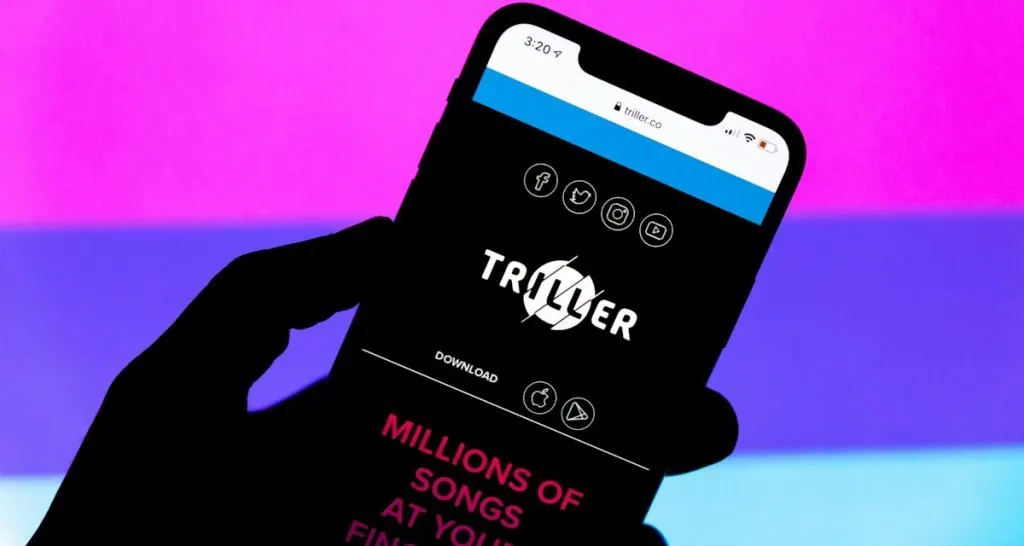As TikTok’s U.S. future hangs in the balance, Triller has announced $50 million in equity funding. Separately, the company is facing at least two new lawsuits. Photo Credit: Solen Feyissa
As TikTok’s U.S. fate hangs in the balance, the revamped Triller has scored a $50 million equity raise and announced another board appointment. Meanwhile, the company is also facing new lawsuits, one submitted by its former board chair.
Triller Group (NASDAQ: ILLR) disclosed its sizable round (and underscored its perceived status “as a fierce competitor” in the short-form world) in a formal release. By now, TikTok’s precarious stateside future, hinging on a sale, is far from a secret.
Less widely known, however, are the moves that the ByteDance-owned app’s Triller rival has been making as of late. After listing on the public market via a SPAC merger, the company in October 2024 announced a new CEO and made multiple board appointments as part of an ongoing “transformation journey.”
(For reasons that don’t appear to have been publicly disclosed, would-be Triller CEO, former Vevo president Kevin McGurn, ultimately failed to join the company. Wing-Fai Ng, who’s CEO of the entity with which Triller merged to arrive on NASDAQ, is currently leading Triller Group.)
The following month, Triller brought on former TikTok exec Sean Kim to head its namesake app – and kicked off 2025 by offering video backup for TikTokers.
In other words, the platform is looking to make waves in the video-sharing arena, and the corresponding plans will seemingly ramp up thanks to the initially mentioned equity raise.
That $50 million tranche derived from “a private placement with institutional investors,” according to Triller Group, which is touting the likes of Conor McGregor, The Weeknd, Marshmello, and Lil Wayne as backers.
More specifically, a company called KCP Holdings led the round; in a regulatory filing, Triller elaborated that it’d inked a deal to sell up to 6.36 million common shares to KCP at $2.20 apiece.
KCP’s founder, Roger Kennedy, is also set to join the Triller Group board. And Triller, evidently banking on continued download and usage results, has confirmed plans for “an additional fundraise… later this year.”
Closer to the present, higher-ups intend to use the newly obtained capital to develop “cutting-edge AI-driven tools,” improved livestream support, and an optimized “video editing suite,” the overarching Group relayed. (Pre-merger, Triller purchased Amplify.AI and different artificial intelligence assets, and certain AI features are already live.)
“At Triller,” added Triller Group CEO Wing-Fai Ng, “we’re not just building a platform—we’re leading a movement. Whether TikTok is banned or not has no bearing on our trajectory. With powerhouses like Conor McGregor and other global icons who champion our vision, we’ve created a platform that is designed to outlast TikTok and any other competitor.
“We’re not building our business around the failure of others; this seismic shift in social media is only the beginning of what’s to come,” he concluded.
Despite those remarks, it goes without saying that the short-form-video market leader’s abrupt shutdown would present new opportunities for rivals. Time will tell how the unprecedented situation unfolds and where exactly Triller finds itself in the space.
Worth reiterating in conclusion is the clear-cut importance of music on video-sharing apps, besides Triller’s historical licensing woes. Among the latter are legal battles involving Sony Music and Universal Music.
At present, some licensed music (including uploads from Megan Thee Stallion) is live on Triller. But the app’s clearance headaches aren’t entirely in the rearview. Anthem Entertainment fired off a redaction-heavy copyright complaint (25-00056) against Triller last month, for instance.
Separately, on top of a $35 million+ promissory note dispute, Triller saw board director Robert Diamond resign in mid-December. On January 7th, the Atlas Merchant Capital co-founder Diamond sued Triller (25-00129) for allegedly failing to pay him north of $5 million in purportedly due compensation as well as millions’ worth of company stock.
“Increasingly concerned regarding the trajectory of Triller and unable to access information necessary to the carrying out of his duties as a director,” the complaint reads in part, “Mr. Diamond was left with no choice but to resign from the Board of Directors, submitting his resignation letter on December 12, 2024.”

